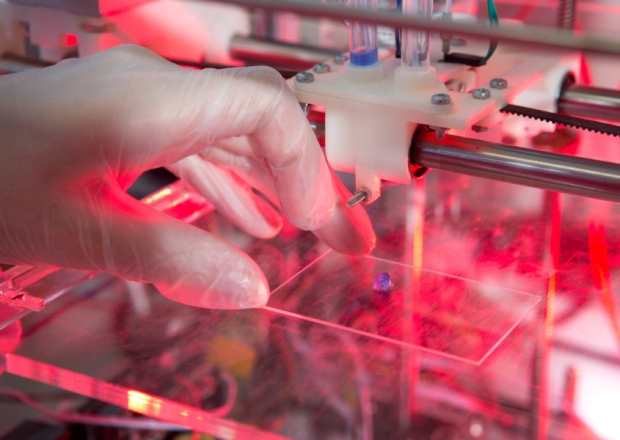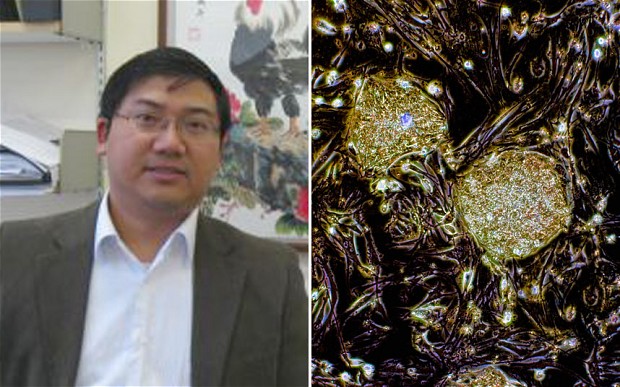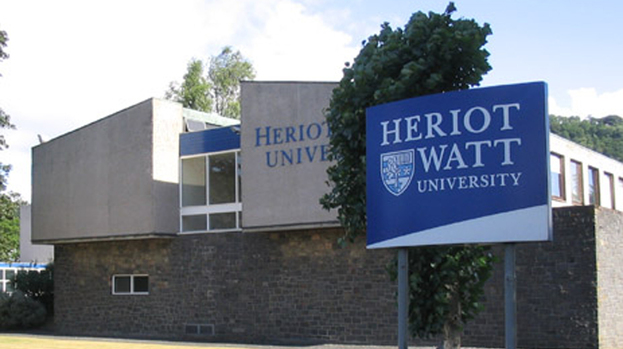In a new breakthrough for bioengineered 3D printing, a team from the Scottish-based Heriot-Watt University’s School of Physical Sciences and Engineering has constructed a 3D printer that is able to print with delicate stem cell cultures. Sure, this sounds pretty freaking neat, but what can it be used for exactly? Well the engineering team, led by University’s Associate Professor Dr. Will Shu, believes that these 3D printed cells can be utilized to test pharmaceutical drug effects, in turn greatly reducing the scientific need for testing on animal subjects. The printer is engineered to print what the team calls ‘induced pluripotent stem’ (iPS) cells, which are delicate cells derived from the particular donor.

“This study is the first to demonstrate that human induced pluripotent stem cells, that is stem cells derived from the adult patient’s own cells, can be bioprinted without adversely affecting their biological functions; that our 3D printing process is gentle enough to do this,” said Dr. Shu. “In this instance we showed that after printing we could turn the stem cells into liver cells.”

Dr. Shu is describing a system that is able to bioprint these sensitive cell cultures without destroying their biological function to create different cell types. By utilizing this new technology, the engineering team hopes to use these bioprinted cells to test drug effects on human parts such as the liver, heart, and brain, all which are cells that can be engineered with these 3D printed stem cells. This is also great news for lab animals as well, who would no longer be needed for potentially harmful drug testing once these human-based stem cells replace them.
“The ability to bioprint stem cells while either maintaining their pluripotency, their ability to develop into all types of cells in the body, or indeed directing their differentiation into specific cell types, will pave the way for producing organoids, or tissues on demand, from patient specific cells,” Dr. Shu added.
The Scottish University’s engineering study is a major breakthrough for the bioengineering world, as well as the animal rights and pharmaceutical drug organizations as well. Dr. Shu and his team’s work to manufacture a bioprinter gentle enough to safely 3D print human stem cells have already shown to be beneficial for pharmaceuticals and animals, who knows what else the capability to 3D print with stem cells might bring?



